
The Seventh Fleet is a numbered fleet of the United States Navy. It is headquartered at U.S. Fleet Activities Yokosuka, in Yokosuka, Kanagawa Prefecture, Japan. It is part of the United States Pacific Fleet. At present, it is the largest of the forward-deployed U.S. fleets, with 50 to 70 ships, 150 aircraft and 27,000 Sailors and Marines. Its principal responsibilities are to provide joint command in natural disaster or military operations and operational command of all U.S. naval forces in the region.

Norman (Nicholas) Scott was a rear admiral in the United States Navy. He was killed along with many of his staff when the ship he was on – the light cruiser USS Atlanta – was hit by gunfire from the heavy cruiser USS San Francisco during the nighttime fighting in the Naval Battle of Guadalcanal. He was the second of five US Navy admirals killed in battle during WWII, including: Isaac C. Kidd ; Daniel J. Callaghan ; Henry M. Mullinnix ; and Theodore E. Chandler.
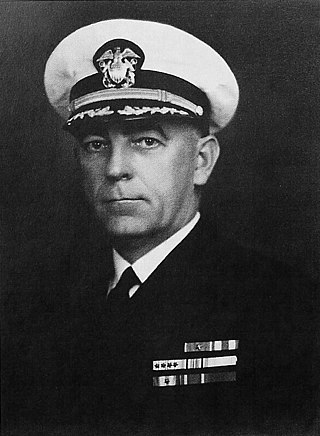
Robert Pearce Briscoe was an admiral of the United States Navy. He commanded two ships, a destroyer squadron, and an amphibious group during World War II. He later served as Commander-in-Chief, Allied Forces Southern Europe, from 1956 to 1959. He was a native of Centreville, Mississippi born February 19, 1897, to Pearce and Alice Briscoe.
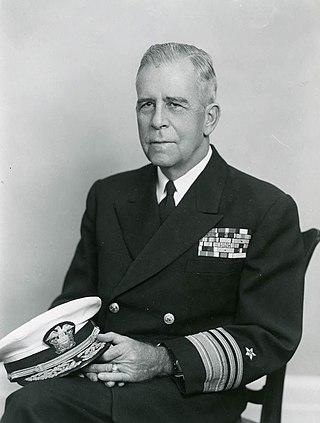
Charles Turner Joy was an admiral of the United States Navy during World War II and the Korean War. During the last years of his career, while fighting leukemia, he served as Superintendent of the Naval Academy. The destroyer USS Turner Joy (DD-951) was named for him.
United States ship naming conventions for the U.S. Navy were established by congressional action at least as early as 1862. Title 13, section 1531, of the U.S. Code, enacted in that year, reads, in part,
The vessels of the Navy shall be named by the Secretary of the Navy under direction of the President according to the following rule: Sailing-vessels of the first class shall be named after the States of the Union, those of the second class after the rivers, those of the third class after the principal cities and towns and those of the fourth class as the President may direct.

Waldemar Frederick August Wendt was a four-star admiral in the United States Navy who served as commander in chief of United States Naval Forces Europe from 1968 to 1971.

Paul Edward Tobin Jr. is a retired rear admiral of the United States Navy. He served as Oceanographer of the Navy from 1996 to 1998 and Director of Naval History from 2005 to 2008.

Raymond A. Spicer is chief executive officer of the United States Naval Institute and a retired rear admiral of the United States Navy.
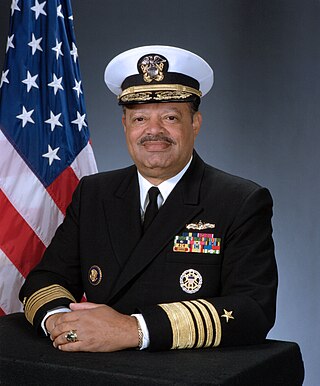
Joseph Paul Reason was Commander in Chief, United States Atlantic Fleet from 1996 to 1999. Earlier in his career, as a commander, he was naval aide to the President of the United States, Jimmy Carter, from December 1976 to June 1979. In 1996, Reason became the first African-American officer in the United States Navy to become a four-star admiral.
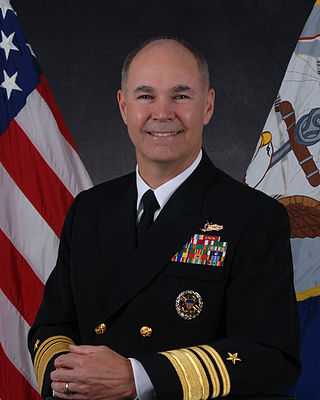
Richard Wayne Hunt is a United States Navy vice admiral who served as Director - Navy Staff. He retired from active duty in November 2013.
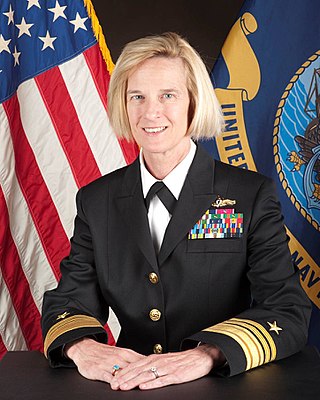
Carol M. Pottenger is a retired United States Navy flag officer. She was among the first women to be assigned to serve at sea in 1978, the first female admiral to command a major combat organization, Amphibious Force 7th Fleet/Expeditionary Strike Group Seven, encompassing the amphibious forces assigned to the western Pacific; and the first female admiral to lead a combatant force "type command", Navy Expeditionary Combat Command, charged with the manning, training and equipping of over 40,000 expeditionary sailors in preparation for combat deployments to Iraq and Afghanistan, as well as global security assistance operations. Her final naval post was with NATO as deputy chief of staff for capability and development at Supreme Allied Commander Transformation, Norfolk, Virginia, the first female officer to hold this position.

Rear Admiral Jesse Alphonzo Wilson Jr. is a retired United States Navy officer. His last active duty assignment was as commander of Naval Surface Force Atlantic.

Kevin Michael Quinn is a retired rear admiral of the United States Navy.
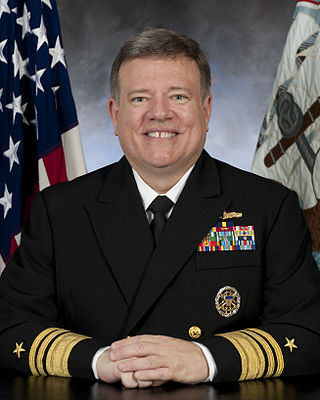
Peter Hasten Daly is a retired United States Navy vice admiral who served as Deputy Commander and Chief of Staff, U.S. Fleet Forces Command. He was the CEO of the United States Naval Institute from 2011 until 2023.

Francis Xavier McInerney was a United States Navy vice admiral, Navy Cross recipient, Silver Star recipient and namesake of USS McInerney (FFG-8).

Rear Admiral Nevin Palmer Carr Jr. is a retired U.S. Navy admiral who served as Chief of Naval Research.
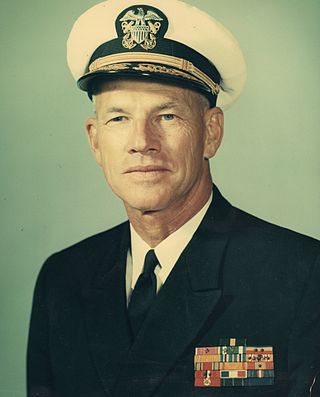
Lloyd Montague Mustin was a vice admiral in the United States Navy and among the namesakes of USS Mustin (DDG-89). He took part in developing the Navy's first lead-computing anti-aircraft gun sight, which proved of major importance in the air-sea actions of World War II, and he served on the cruiser USS Atlanta during the naval battle of Guadalcanal. His ship was lost during that action, and with other survivors he landed on Guadalcanal and served ashore with a naval unit attached to the First Marine Division. His postwar service included commands at sea and development and evaluation of weapon systems. He later served as director of operations for the Joint Chiefs of Staff during the Vietnam War.

Christopher Watson Grady is a United States Navy admiral who is currently serving as the 12th vice chairman of the Joint Chiefs of Staff since December 20, 2021.

Paul J. Schlise is a retired rear admiral in the United States Navy.
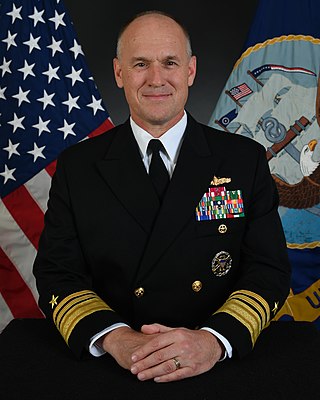
Eugene Henry Black III is a retired United States Navy vice admiral and career surface warfare officer who last served as the deputy chief of naval operations for operations, plans and strategy from 2022 to 2024. He previously served as the 30th Commander of United States Sixth Fleet, deputy commander of United States Naval Forces Europe, deputy commander of United States Naval Forces Africa, and as the Joint Force Maritime Component Commander from 2020 to 2022.



















